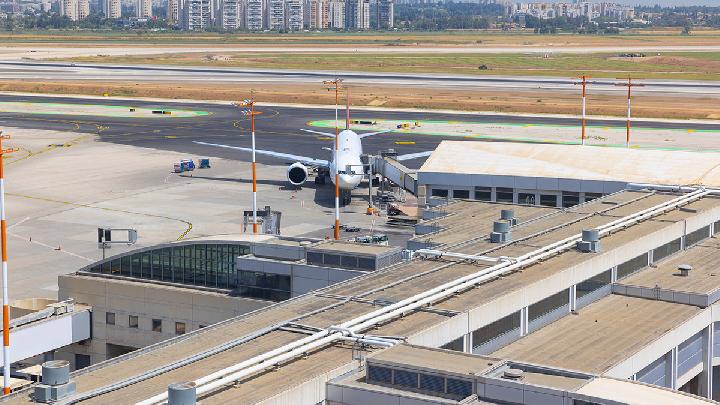ANTHONY Albanese has made history. The current Australian Prime Minister has secured an emphatic victory in the election on Saturday, May 3, 2025, extending his term in office and becoming the first Labor Party prime minister to serve two consecutive terms in the last two decades.
In a decisive win, the Labor Party defeated the conservative coalition of the Liberal and National Parties, marking a rare consecutive term in office for the party. According to Al Jazeera, some within the Liberal Party speculated that the influence of US President Donald Trump - dubbed the "Trump factor" - may have shaped voter sentiment during the campaign, drawing international attention due to concerns over trade and tariffs.
More than 18 million eligible Australian voters participated in this federal election, heavily influenced by pressing economic issues and foreign policy debates, especially amid the global political shifts triggered by US President Donald Trump, reported Anadolu.
The election contested 190 seats in parliament, including 150 seats in the House of Representatives and 40 seats in the Senate. Notably, the election marked the first time that opposition leader Peter Dutton, known for his controversial anti-Muslim views, lost his own parliamentary seat.
At 62, Albanese pledged to honor the trust given to him by the voters "every day" as he prepared to commence his second term in office after the electoral commission finalized the official results.
In his victory speech, he emphasized the importance of respecting the trust placed in his party, stating, "Because together, we will turn towards a better direction... with no one holding back and no one left behind."
Early Life and Political Career
Anthony Albanese was born in 1963 to a single mother of Irish descent. Raised in public housing in Camperdown, a suburb in western Sydney, Albanese attended St. Joseph's Primary School and St. Mary's Cathedral High School. He obtained a bachelor's degree in economics from the University of Sydney, as reported by Indian Express. Before fully entering politics, he worked at the Commonwealth Bank.
Albanese often describes his childhood as shaped by three major influences: the Catholic Church, the South Sydney Rabbitohs rugby league team, and the Australian Labor Party. In his youth, he believed that his father had died before he was born, only to later discover that he was conceived during a brief romance on a cruise ship. Decades later, after his mother's passing, he reconnected with his father.
His political journey began in the early 1980s, inspired by his mother's involvement in the Labor Party. Albanese started as a research officer for Tom Uren, a politician who became his main mentor.
He won his first election at the age of 33 in 1996. He continued to hold his seat, culminating in his appointment as the 31st Prime Minister of Australia in May 2022.
He is the first Labor Party leader to form a government since 2013.
First Term Achievements and Challenges
Ascending to power in 2022, Albanese campaigned on promises to combat climate change, rebuild international alliances, and provide economic assistance post-COVID-19 pandemic. At the start of his term, he introduced more ambitious climate policies and sought to improve diplomatic relations with China and France-two significant foreign policy successes.
Domestically, Albanese tackled the housing affordability crisis in Australia by pledging to build 1.2 million new homes and launching initiatives such as rental assistance, tax cuts, and discounts aimed at aiding low-income Australians. However, critics argue that these measures were not sufficient.
Despite initially enjoying strong approval ratings, his government soon faced mounting challenges due to inflation and slow economic growth, raising the cost of living.
The biggest political setback was the 2023 Indigenous Voice referendum, which sought to constitutionally acknowledge the Aboriginal and Torres Strait Islander peoples and establish an advisory body. Although the government did not lead this campaign, Albanese was its most prominent supporter. The proposal was outright rejected by the voters.
Foreign Policy and Diplomacy
Albanese successfully stabilized relations with China, ending years-long trade tensions and establishing high-level dialogue. He also improved relations with France following the cancellation of the submarine contract during Scott Morrison's administration.
The Israel-Gaza conflict posed a diplomatic challenge for his government. Initially, Albanese supported Israel's right to self-defense, but later called for a permanent ceasefire and recognized the need for Palestinian statehood after Hamas's defeat. This nuanced stance drew criticism from conservative factions and pro-Palestinian groups.
As he begins his second term, Albanese has pledged to expand Medicare by subsidizing most general practitioner visits, providing relief for student debt, and continuing to advance climate action. His primary goal is to ensure that no Australians are left behind as the nation progresses.
Editor's Choice: Anthony Albanese Becomes Australia's First PM to Win Consecutive Three-Year Terms in 21 Years
Click here to get the latest news updates from Tempo on Google News



























:strip_icc():format(jpeg)/kly-media-production/medias/5066824/original/015265300_1735270668-token_listrik_gratis.jpg)
:strip_icc():format(jpeg)/kly-media-production/medias/4981531/original/087644600_1730043083-UAH.jpg)
:strip_icc():format(jpeg)/kly-media-production/medias/4857958/original/019677000_1717923099-WhatsApp_Image_2024-06-08_at_22.48.34.jpeg)
:strip_icc():format(jpeg)/kly-media-production/medias/5078142/original/028454200_1736072896-khabbashasanpendiripon.jpg)
:strip_icc():format(jpeg)/kly-media-production/medias/3977835/original/066021800_1648524608-pexels-ahmed-aqtai-2233416_1_.jpg)
:strip_icc():format(jpeg)/kly-media-production/medias/3428658/original/001946500_1618390460-WhatsApp_Image_2021-04-14_at_10.58.41_AM__1_.jpeg)
:strip_icc():format(jpeg)/kly-media-production/medias/3992996/original/032438700_1649747895-WhatsApp_Image_2022-04-12_at_13.14.12__1_.jpeg)
:strip_icc():format(jpeg):watermark(kly-media-production/assets/images/watermarks/liputan6/watermark-color-landscape-new.png,1100,20,0)/kly-media-production/medias/4115569/original/096082800_1659876206-Buya_Yahya.jpg)
:strip_icc():format(jpeg)/kly-media-production/medias/5114856/original/088700500_1738248362-Screenshot_2025-01-30_21.39.48.jpg)
:strip_icc():format(jpeg)/kly-media-production/medias/4640029/original/024357700_1699412539-muslim-family-having-ramadan-feast_1_.jpg)
:strip_icc():format(jpeg)/kly-media-production/medias/5106583/original/012414400_1737616327-BPJS_KKes.jpg)
:strip_icc():format(jpeg)/kly-media-production/medias/5121089/original/029230500_1738678471-dr_Zaidul_Akbar.jpg)
:strip_icc():format(jpeg)/kly-media-production/medias/65063/original/arab-banjir-130428b.jpg)
:strip_icc():format(jpeg)/kly-media-production/medias/4745035/original/009186000_1708102823-Mbah_Thohir_Bungkuk-tebuireng.co.jpg)
:strip_icc():format(jpeg)/kly-media-production/medias/4380793/original/005316200_1680480714-man-praying-floor-indoors.jpg)
:strip_icc():format(jpeg)/kly-media-production/medias/3429232/original/047319400_1618459145-pexels-mentatdgt-1071979.jpg)
:strip_icc():format(jpeg)/kly-media-production/medias/3157041/original/063367600_1592547901-WhatsApp_Image_2020-06-19_at_12.59.18__2_.jpeg)
:strip_icc():format(jpeg)/kly-media-production/medias/5108842/original/009776100_1737773055-SIM_2025.jpg)
:strip_icc():format(jpeg)/kly-media-production/medias/3317424/original/028829400_1607329507-mehrad-vosoughi-SsKf1L6rWJk-unsplash.jpg)